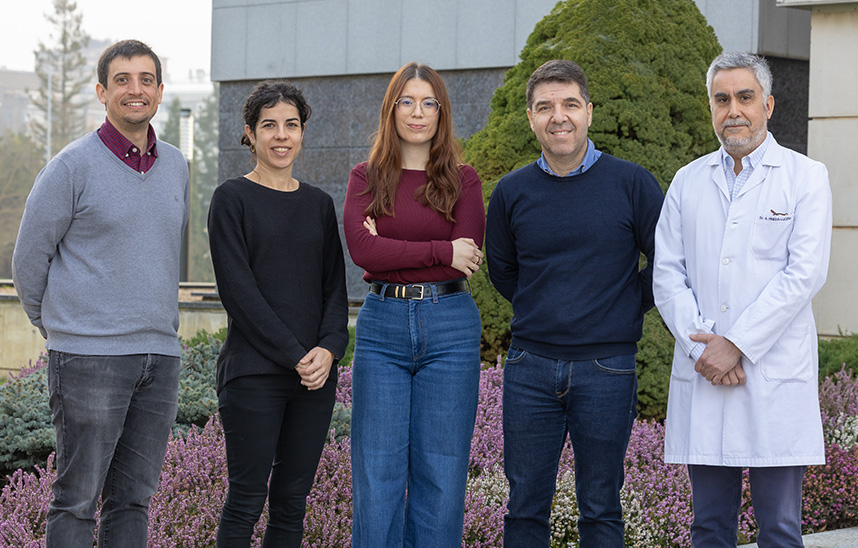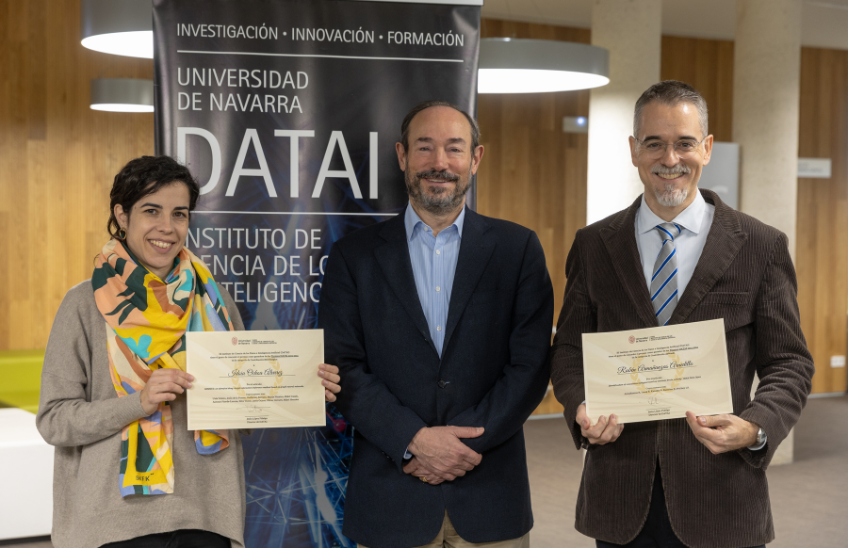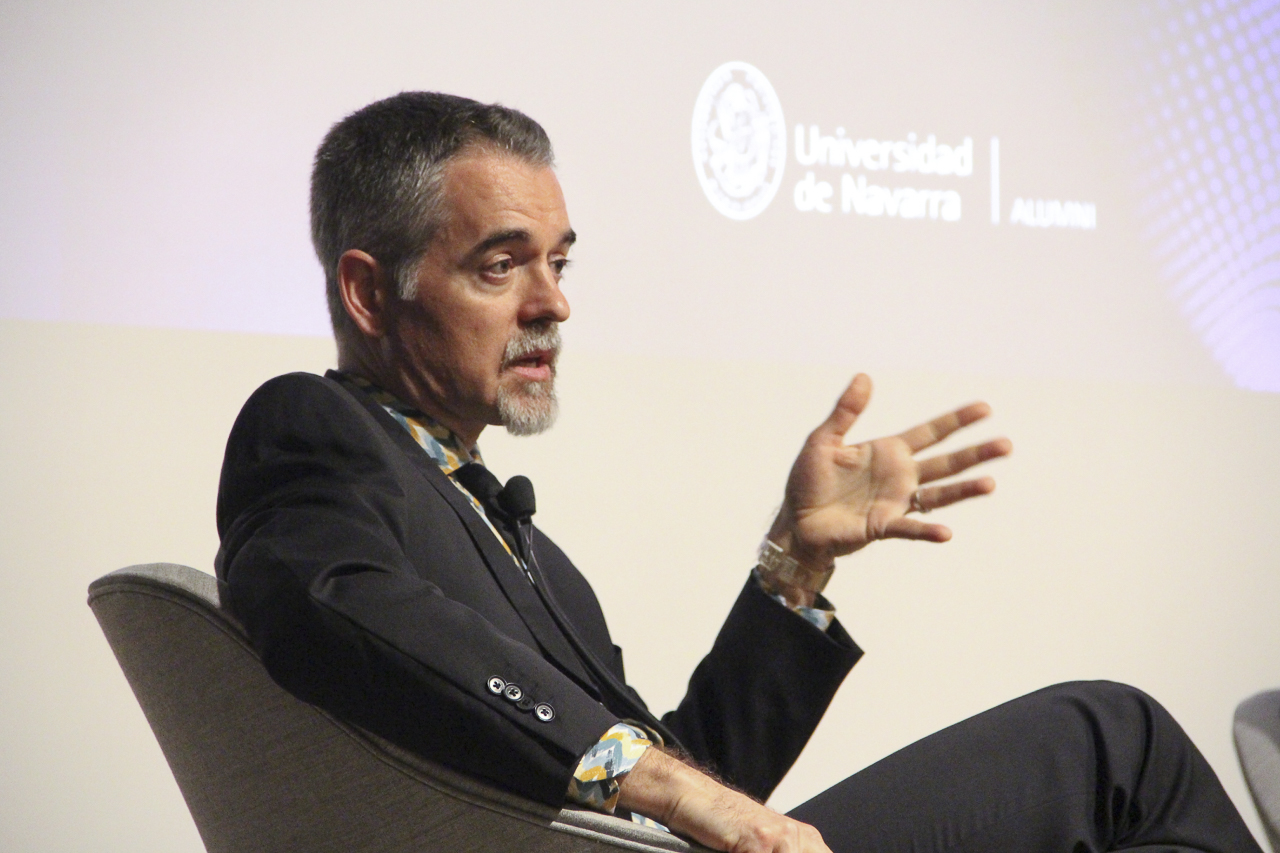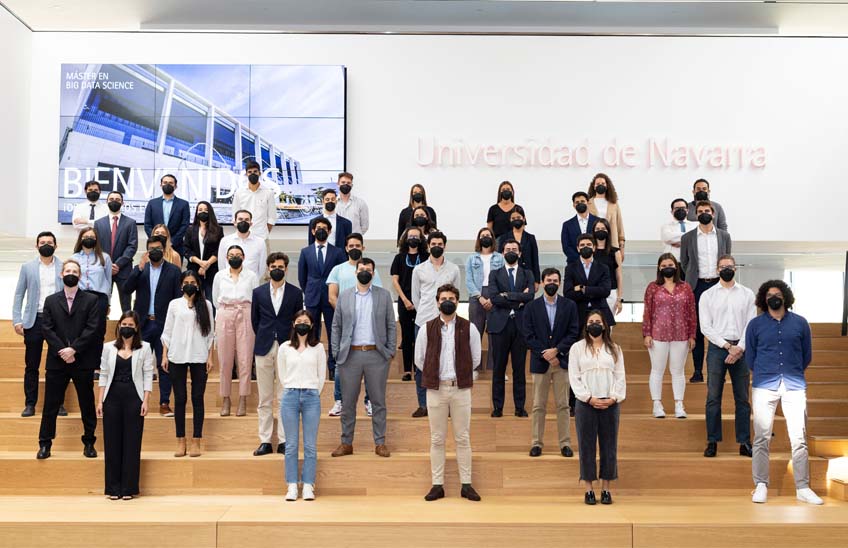Develop an AI model to ensure unbiased decisions in core topic areas such as health, Education and recruitment
Researchers from the University of Navarra present this new predictive methodology that could help governments and companies to eliminate algorithmic discrimination and ensure fairness in critical decisions.
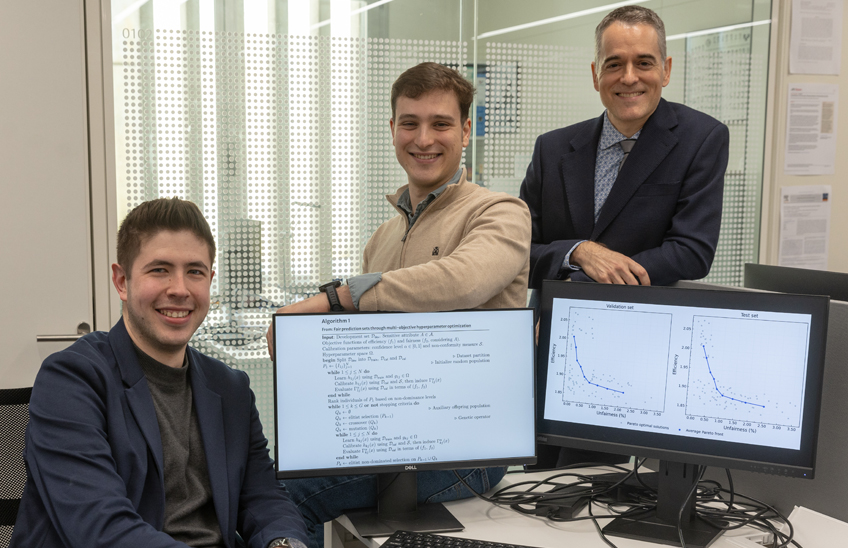
PhotoManuelCastells/From left to right: Alberto García Galindo, Marcos López De Castro and Rubén Armañanzas Arnedillo.
18 | 02 | 2025
Researchers from the Institute of data Science and Artificial Intelligence (DATAI) at the University of Navarra of the University of Navarra have presented an innovative methodology that improves the fairness and reliability of artificial intelligence models used in critical decision making. These are decisions that have a great impact on people's lives or on the functioning of organizations, as is the case in areas such as health, Education, justice or recruitment.
The team, formed by researchers Alberto García Galindo, Marcos López De Castro and Rubén Armañanzas Arnedillo, has developed this new system that optimizes the parameters of reliable machine learning models. These models are AI algorithms that make predictions in a transparent way ensuring certain confidence levels. With this contribution, the researchers propose a methodology capable of reducing inequalities related to sensitive attributes such as race, gender or socioeconomic status, among others.
Machine Learning, one of the leading scientific journals in the field of artificial intelligence and machine learning, publishes this study that combines advanced prediction techniques with algorithms inspired by the process of natural evolution (evolutionary learning) that, in addition to offering rigorous confidence levels, also ensure equitable coverage between different social and demographic groups. This means that this new AI model offers the same level of reliability regardless of the characteristics of individuals, ensuring fair and unbiased results.
"The widespread use of artificial intelligence in sensitive domains has raised ethical concerns due to possible algorithmic discriminations," explains Armañanzas Arnedillo, principal researcher at DATAI at the University of Navarra. "Our approach allows companies and public policy makers to choose models that balance efficiency and fairness according to their needs, responding to emerging regulations. This breakthrough is part of the University of Navarra's commitment to promote the Philosophy of AI manager, promoting the ethical and transparent use of this technology".
Application in real scenarios
The method was successfully tested on four real-world data related to income, criminal recidivism, hospital readmission and school admissions. The results showed that the new algorithms could significantly reduce inequalities without compromising the accuracy of the predictions. "In our analysis we found, for example, striking biases in the prediction of school admissions, showing a significant lack of fairness based on family financial status," says Alberto García Galindo, DATAI predoctoral researcher at the University of Navarra and first author of the article. "In turn, these experiments demonstrated that, in many cases, our methodology manages to reduce such biases without compromising the predictive ability of the model. In particular, with our model we found solutions in which the discrimination was practically completely reduced, maintaining the accuracy of the predictions". In addition, the methodology offers a 'Pareto frontier', "which allows us to visualize the best available options according to priorities and to understand, for each case, how algorithmic fairness and accuracy are related".
According to the researchers, this innovation has a wide potential for application in sectors where AI supports critical decision making in a reliable and ethical manner. Garcia Galindo notes that their "methodology not only contributes to fairness, but also allows a deeper understanding of how the configuration of the models influences the results, which could guide future research in the regulation of AI algorithms". With this goal in mind, the researchers have made the code and data from the study publicly available to encourage research and transparency in this emerging field.

